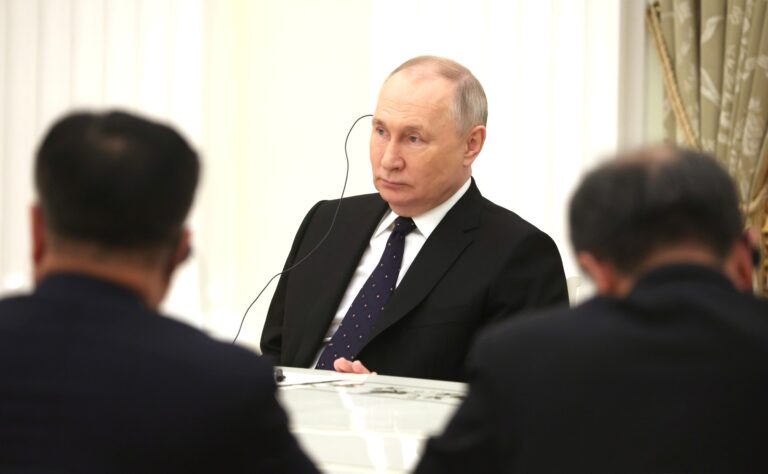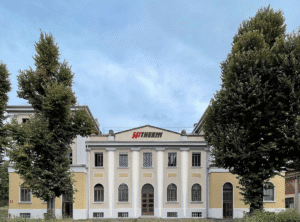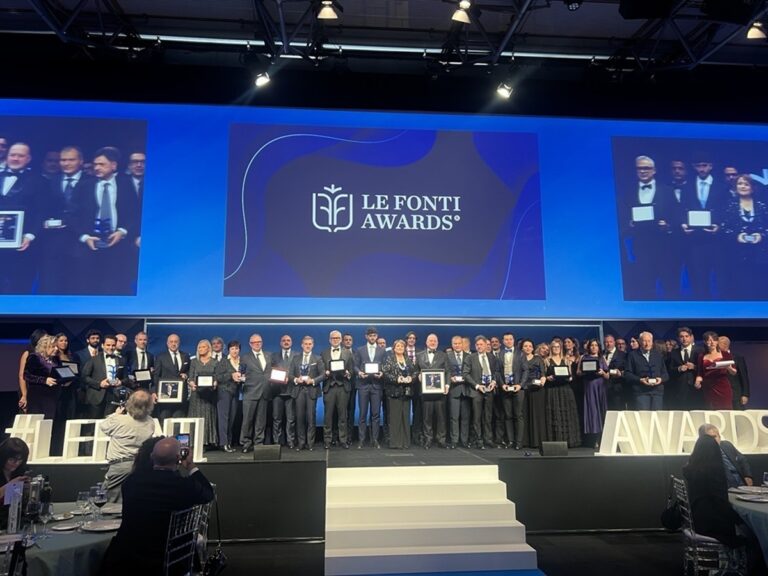The International Criminal Court has issued an arrest warrant against Russian President Vladimir Putin. He is allegedly “responsible for the war crime of illegal deportation of population (children) and illegal transfer of population (children) from occupied areas of Ukraine to Russia.”
This was stated in the court’s own statement. In addition to Putin, another arrest warrant was issued against Maria Alekseyevna Lvova-Belova, commissioner for children’s rights at the Kremlin.
The news comes after a meeting between Vladimir Putin and Chinese President Xi Jinping, who recently received a reappointment, was made official for next week in Moscow. The two will sign a document on a “new era” of partnership and strategic relations between the two countries.
Table of Contents
The Hague issues arrest warrants for Putin: “war crimes”
The International Criminal Court will send two arrest warrants for Russian officials held responsible for the forced deportation of children from Ukraine and for targeting civilian infrastructure.
Should this materialize, these would be the first warrants by the ICC related to the Russian invasion of Ukraine.
The ICC prosecutor, Karim Khan, reportedly asked the preliminary investigation judges to approve the arrest warrants based on the evidence gathered so far. However, it is unclear whether the warrants will be sealed. Which would leave the recipients in the dark about their involvement in the proceedings.
What is certainly unlikely is that such warrants will lead to trials since the ICC cannot try the defendants in absentia, and it is highly unlikely that Russia, which is not a member of the ICC, would be in any way willing to hand over the defendants to the Hague tribunal.
Khan had opened an investigation into possible war crimes, crimes against humanity and genocide in Ukraine a year ago. Over the past 12 months, the prosecutor has made three trips to Ukraine and visited sites suspected of war crimes.
Meanwhile, in recent hours Human Rights Watch has raised the alarm about children deported to Russia. “The war in Ukraine has had traumatic and devastating consequences for children housed in care institutions. Including those forcibly relocated to Russia and separated from their families,” Hrw says in its report.
In which it documents the risks to children from care institutions in areas directly affected by the conflict. As well as those evacuated to other areas of Ukraine or to European countries.
Read also: Russo-Ukrainian war, one year later: the number of military and civilian deaths and injuries
What is the International Criminal Court?
The International Criminal Court (ICC) is a permanent court based in The Hague, Netherlands, and has jurisdiction over four categories of international crimes. Namely, genocide, crimes against humanity, war crimes, and aggression.
The ICC was established in 2002 by the Treaty of Rome, which has been ratified by 123 countries. The Court aims to prosecute and try individuals responsible for these serious crimes when the countries involved are unable or unwilling to do so. The ICC can also investigate and prosecute crimes committed by rulers, military leaders and other government authorities.
Russia signed the Rome Treaty in 2000 but has not ratified it and therefore is not a state party to the International Criminal Court (ICC).
Russia has, in fact, expressed concerns about the ICC’s independence and bias. And criticized some of its decisions and investigations, particularly those related to the conflict in Georgia and the situation in Ukraine.
However, the ICC has jurisdiction over all crimes committed on the territory of a state party. Thus regardless of the nationality of the perpetrator. And, Russia could be subject to the Court’s jurisdiction if it committed international crimes on a state party’s territory.
Read also: Putin’s war: what are the real and alleged targets of the Russian invasion of Ukraine












